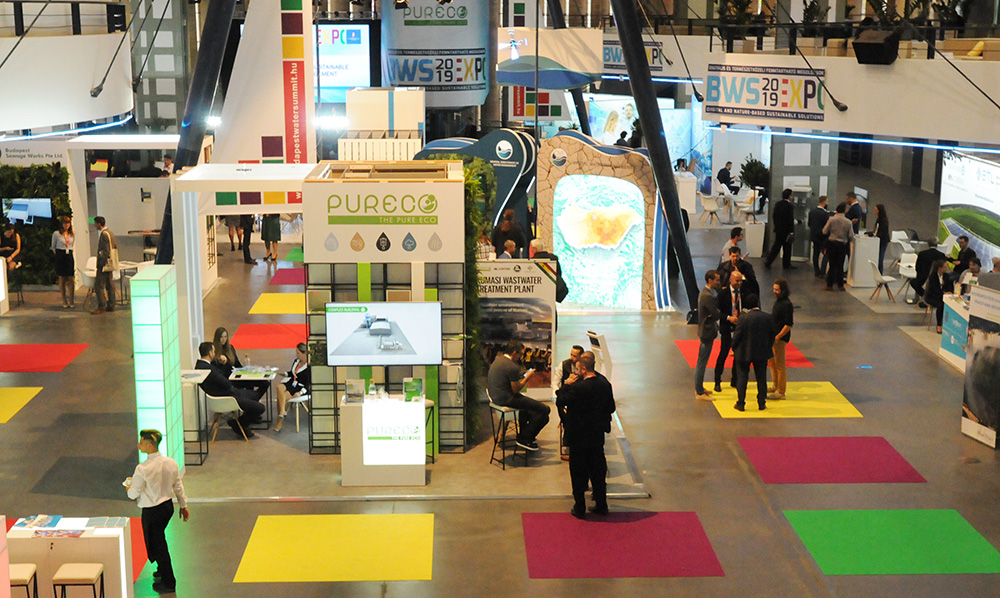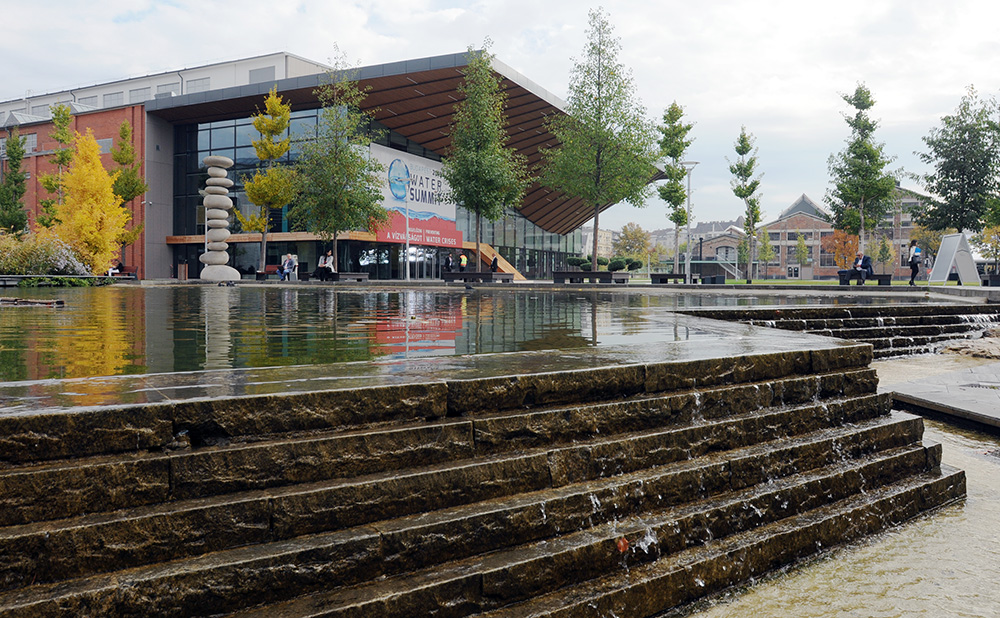Summary
Highlights for Wednesday, 16 October 2019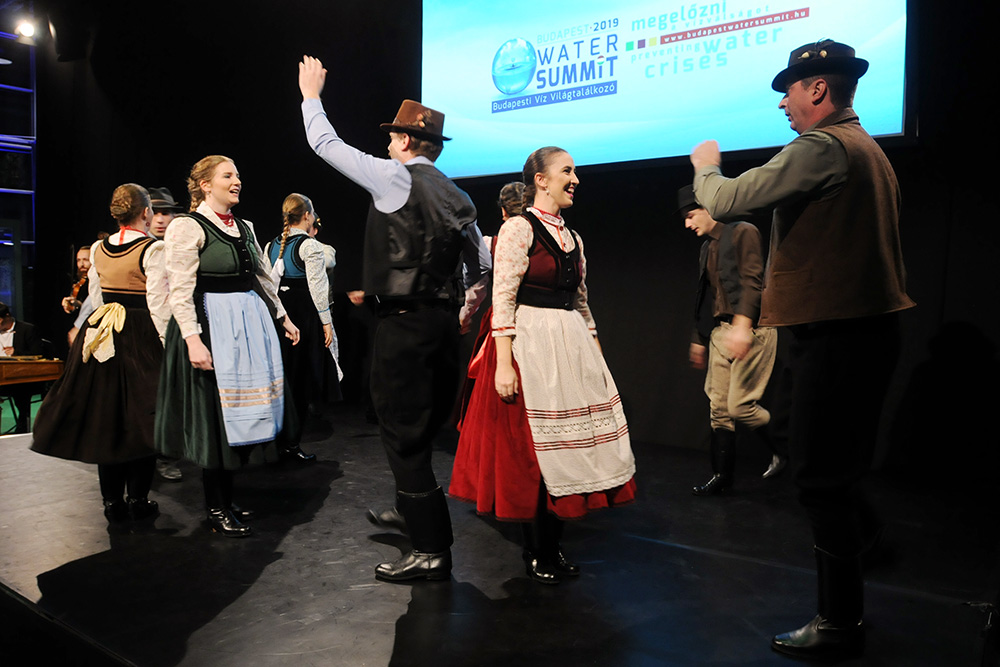
The 2019 Budapest Water Summit resumed on Wednesday. Throughout the day, participants attended four sessions to continue discussing water crises, bringing together ministers and high-level representatives from Turkey, Switzerland, Uganda, and China, as well as representatives from the World Meteorological Organization (WMO), multilateral development banks, international research centers, Deutsche Gesellschaft für Internationale Zusammenarbeit GmbH (GIZ), the Union for the Mediterranean (UfM), and national water utilities, among others. Hungarian President János Áder attended the science discussion in the afternoon.During the sessions, participants heard keynotes followed by panel discussions on:
On water stress and migration, panelists discussed water infrastructure for refugees, water risk modeling, the water cycle, and new models for economic development. Bekir Pakdemirli, Minister of Agriculture and Forestry, Turkey, highlighted the significant investments made to upgrade water and sanitation infrastructure in refugee host cities and provinces, underlining that Turkey hosts the largest refugee population in the world.Nizar Zaied, Islamic Development Bank (IsDB), linked migration movements and water scarcity hotspots, stressing the importance of mobilizing resources to reduce vulnerabilities of populations at risk for environmentally-induced migration. On investments for water security, panelists discussed challenges to link financiers to implementing agencies.Diverging views on subsidies added depth to the panel. Andreas Proksch, GIZ, opined that subsidies are necessary to achieve the sustainable development goal on water (SDG 6), while Prithvi Raj Singh, Jal Bhagirathi Foundation, worried that doubling investment in water leads to increased water resource exploitation. To support water investments, David Tyler, European Bank for Reconstruction and Development, discussed the Green Cities programme as an example of a collaborative approach and Ákos Szalai, Head of Department, National Bank of Hungary, described the potential for central banks to use green bond portfolios.On technology in water crises, discussions focused on: tools for water efficiency; translating data to action and technology into practice; integrated systems; and the need for increased interdisciplinary work. Sam Cheptoris, Minister of Water and Environment, Uganda, identified the need for water efficiency, and encouraged investment and promotion of a number of technologies.Noting that 40% of WMO members lack established flood forecasting and warning services, Johannes Cullman, WMO, highlighted the World Water Data Initiative and making the human right to water access more prominent.Regarding science in water crises, intense discussion involved the role of science in: developing and communicating relevant knowledge to solve water challenges; assisting decision makers to manage competing interests; and enhancing monitoring of the SDGs.Charles Vörösmarty, City University of New York, set the stage for understanding scientific gaps in SDG 6, outlining “next generation” products to address those gaps.Claudia Sadoff, International Water Management Institute (IWMI), discussed research priorities, particularly in agriculture, climate and economic growth.A series of side events and a Digital and Nature-based Sustainable Solutions Expo took place in parallel to the Summit. In the evening, participants attended a reception and cultural programme at the Millenáris Park Conference Center.
IISD Reporting Services, through its ENB+ meeting coverage, provided daily digital coverage and daily reports from BWS 2019. In addition, IISD Reporting Services, has published a summary report in HTML and PDF.
Photos by IISD/ENB | Diego Noguera
For photo reprint permissions, please follow instructions at our Attribution Regulations for Meeting Photo Usage Page
Session 4: Water Stress and Mass Migration – Is There a Way to Prevent Crisis?
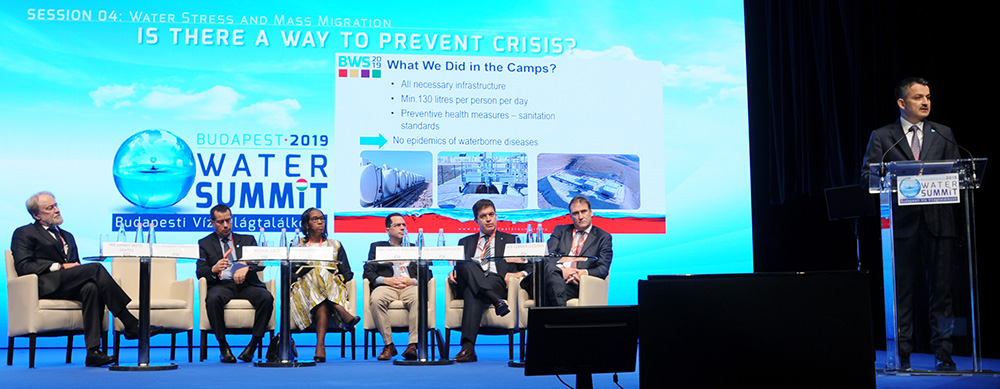
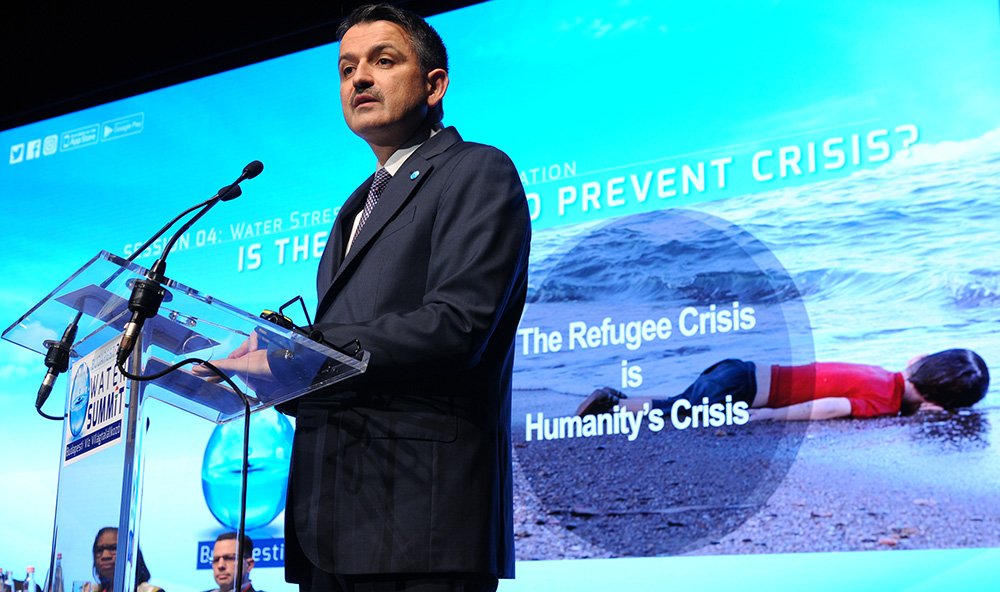
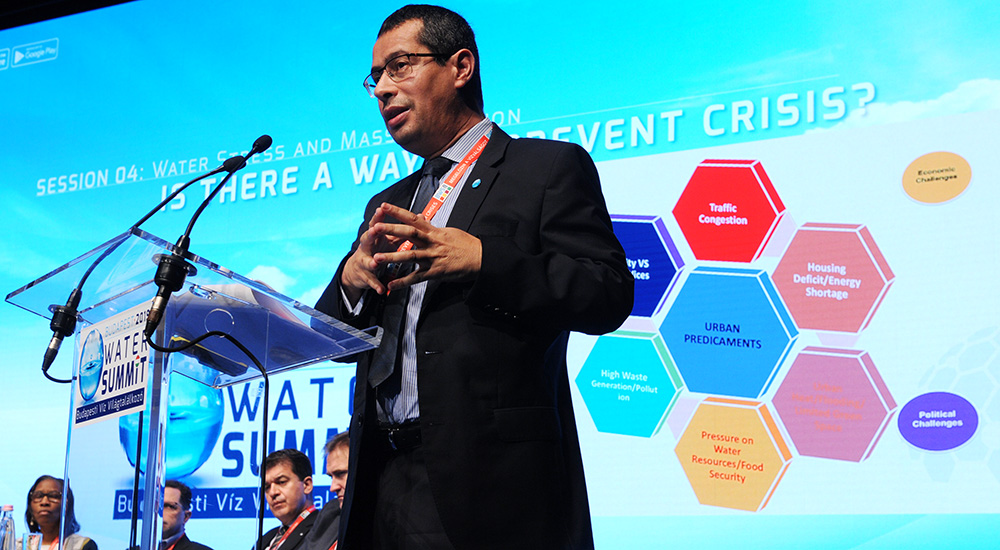
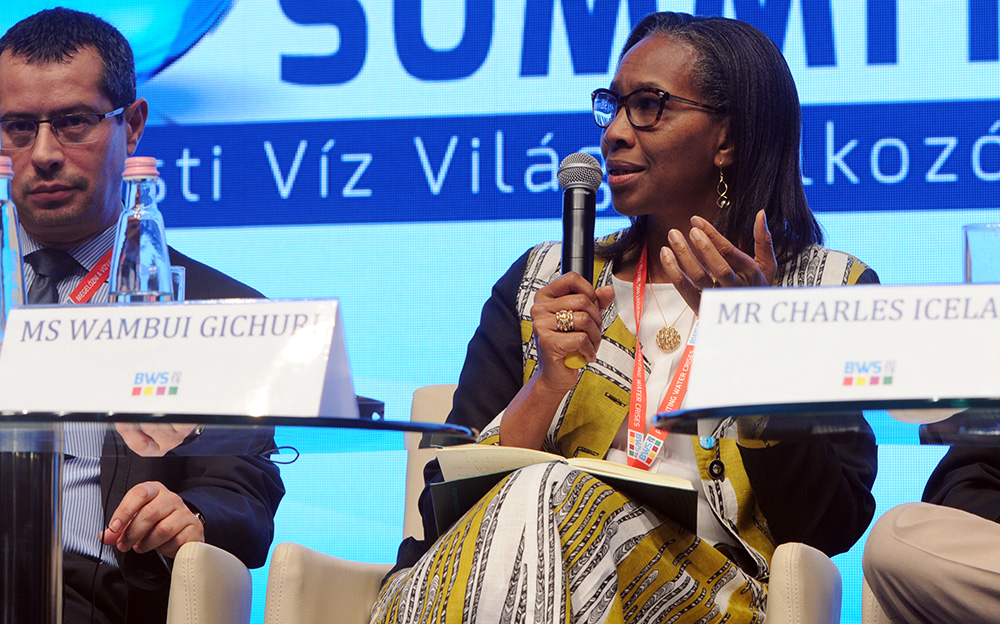
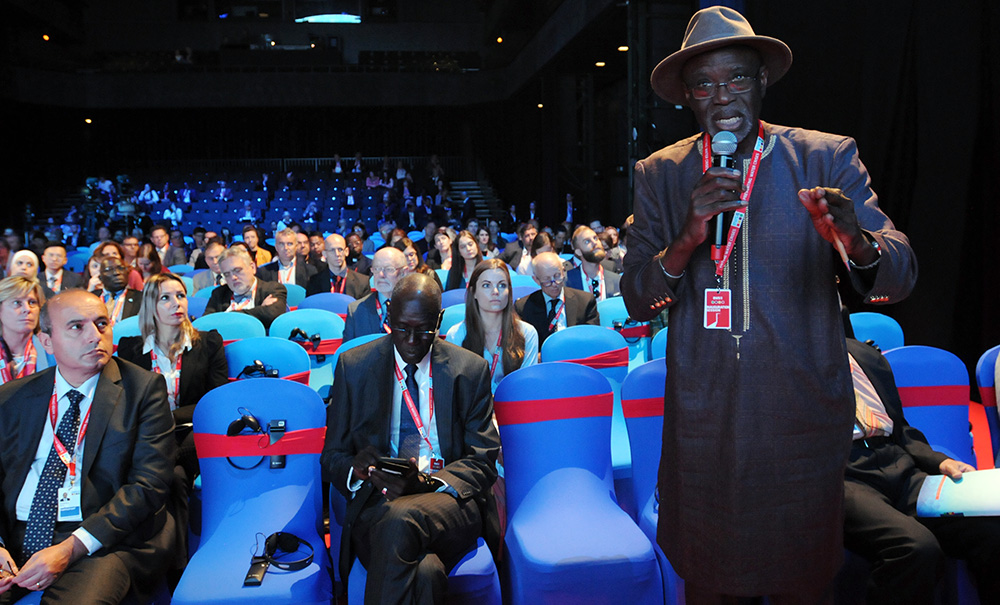
Session 5: What Is Needed for Doubling Investments?
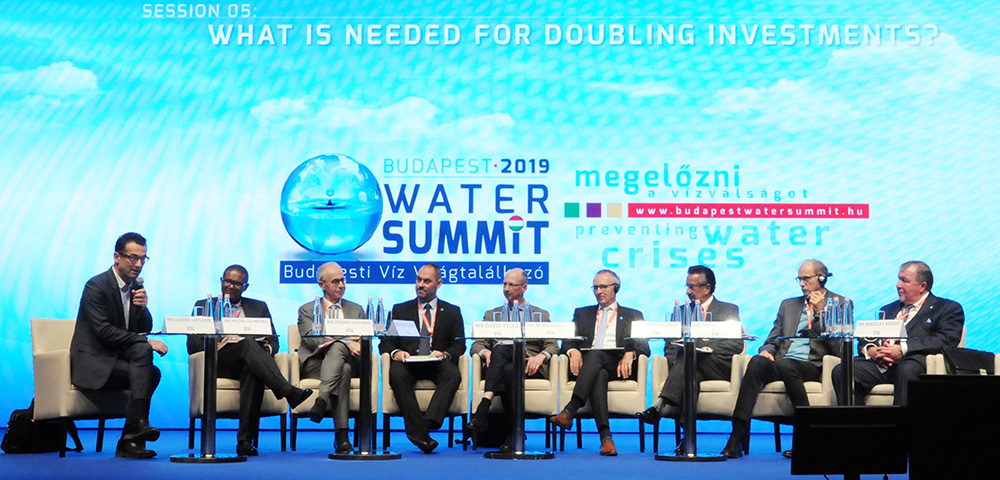
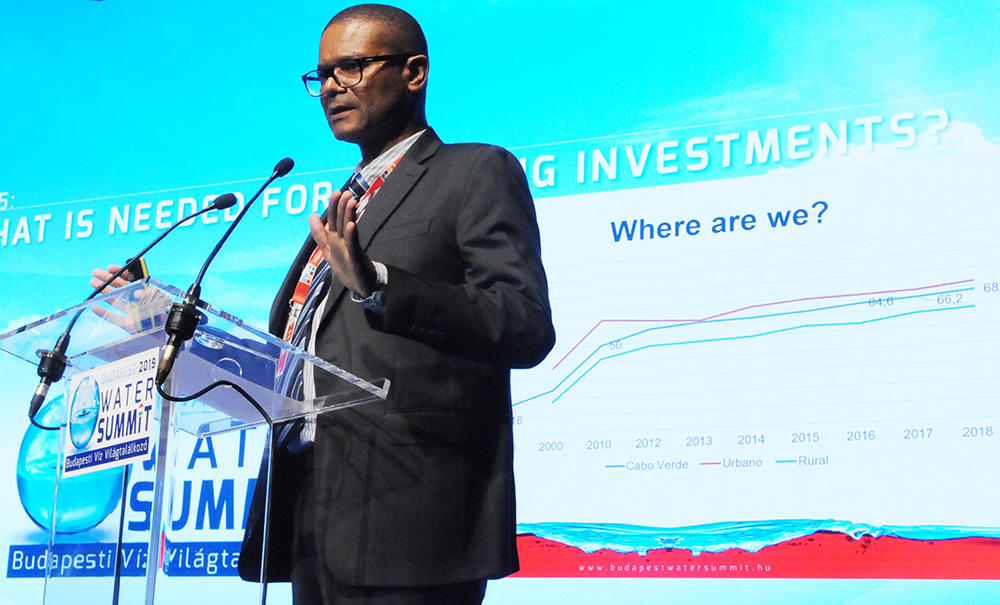
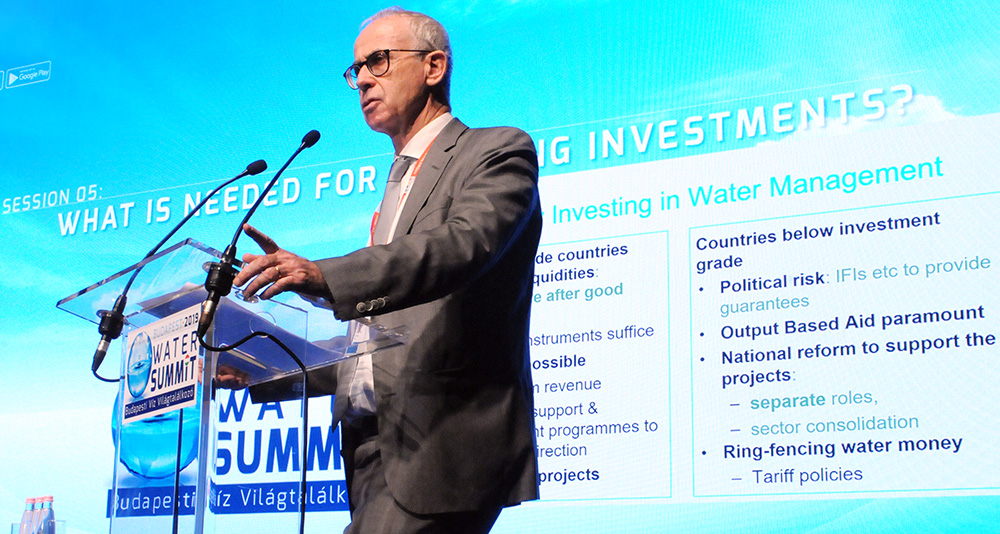
Session 6: Technology to Avoid Water Crises – What is Missing?
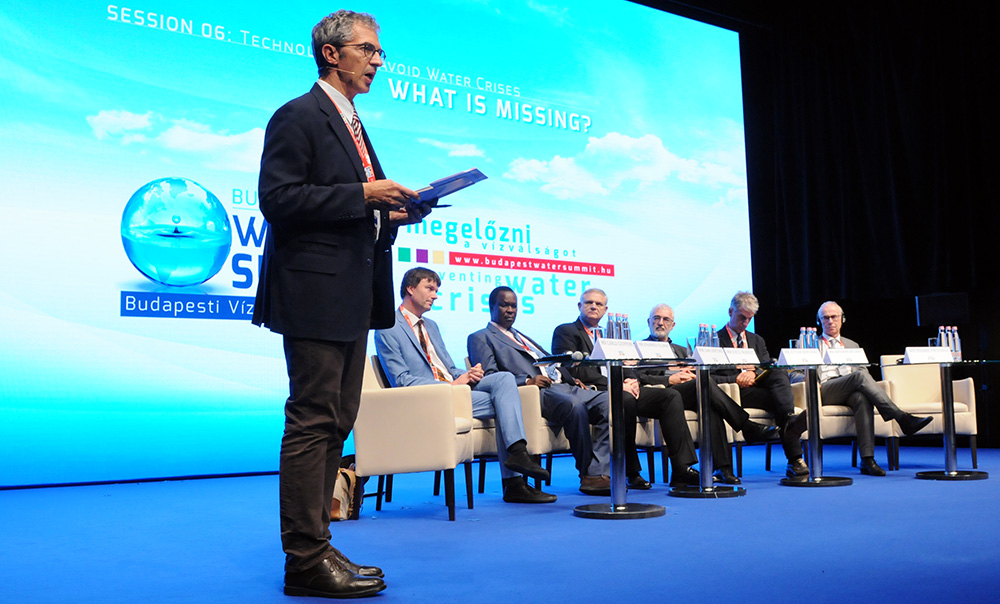
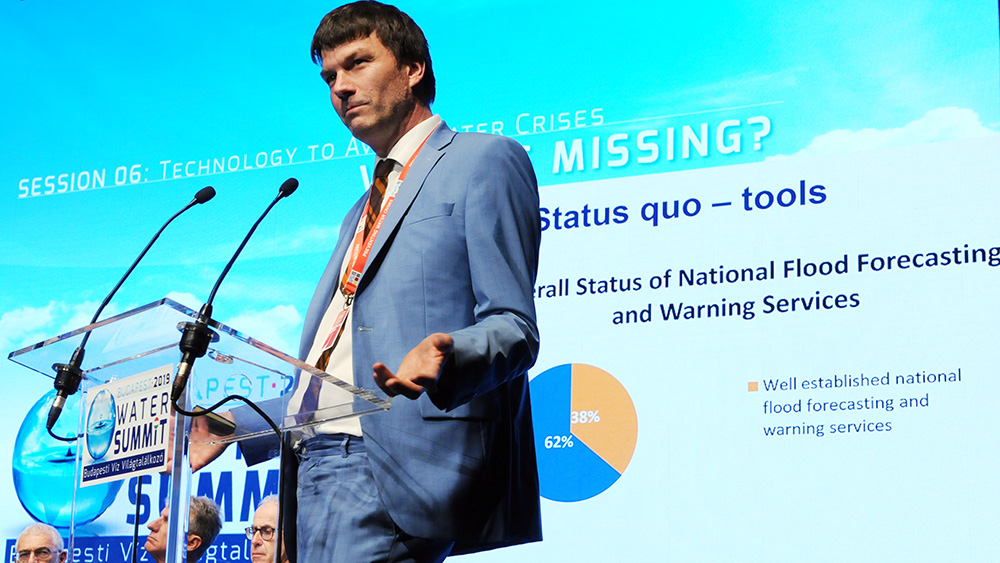
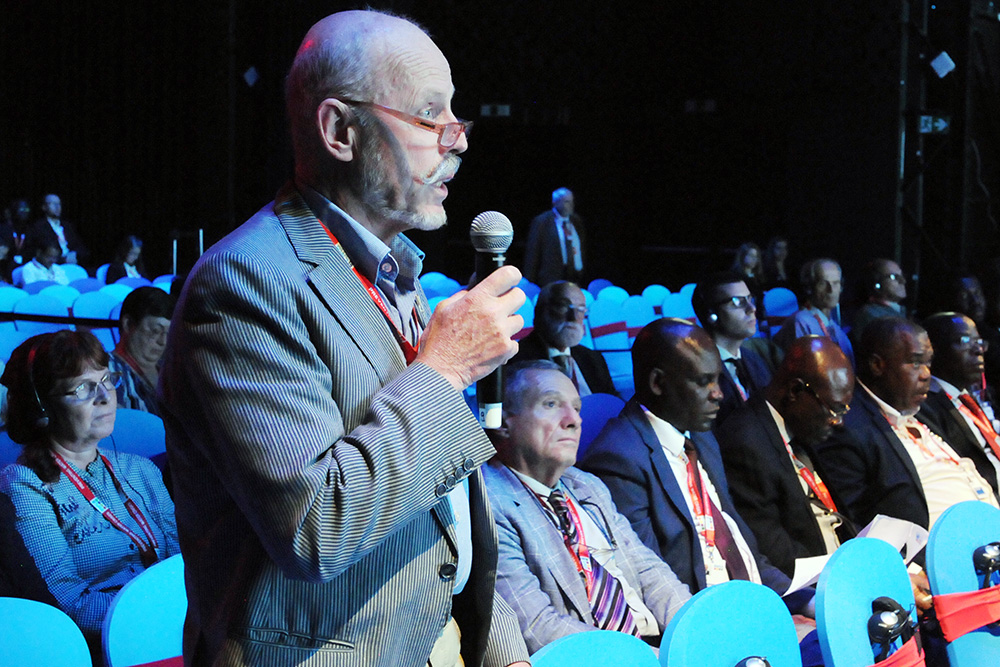
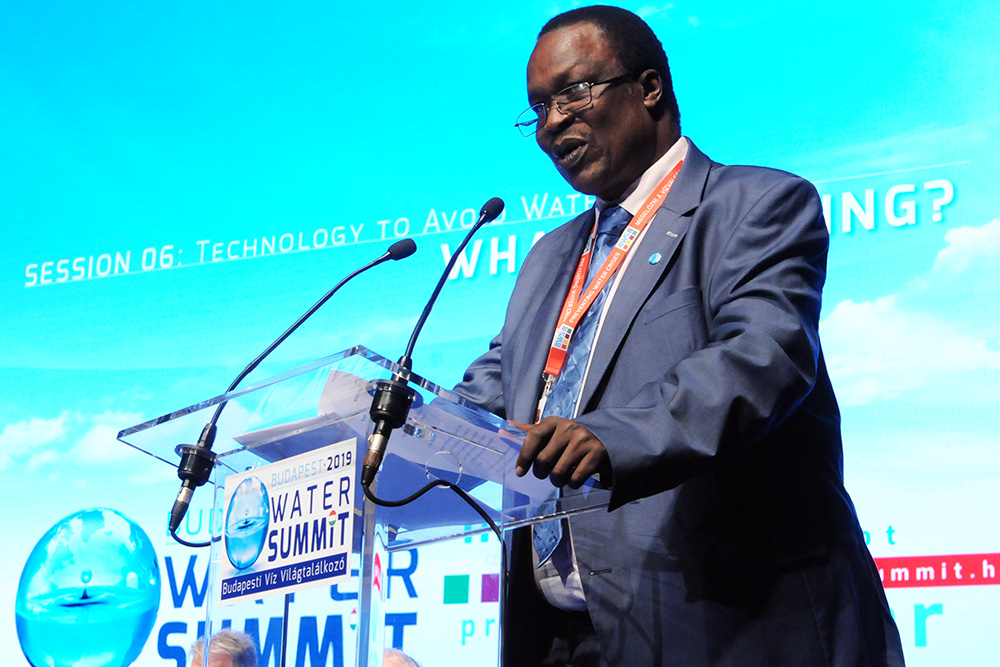
Session 7: Science Against Water Crises: Do we Know Enough?
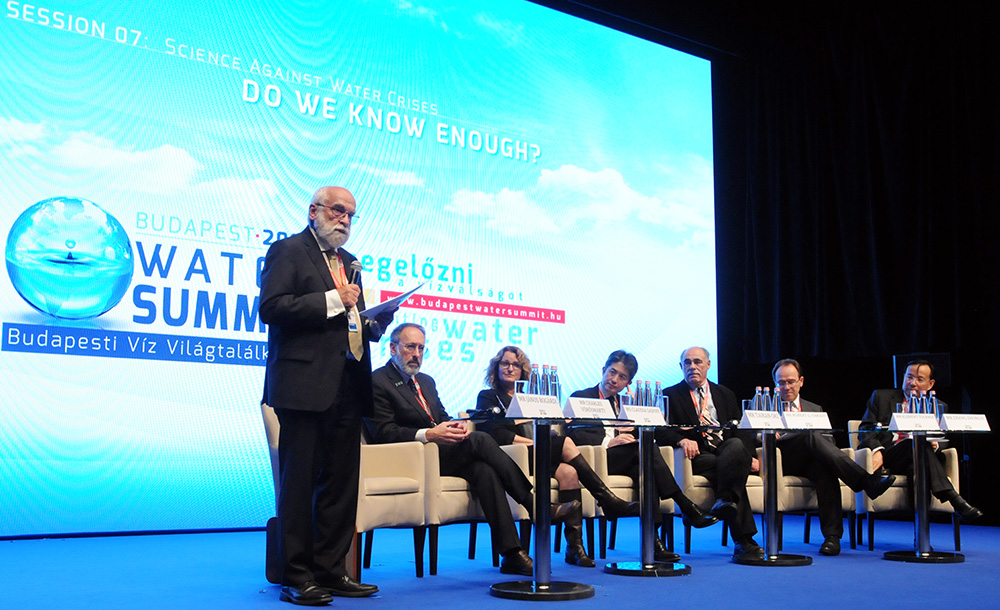
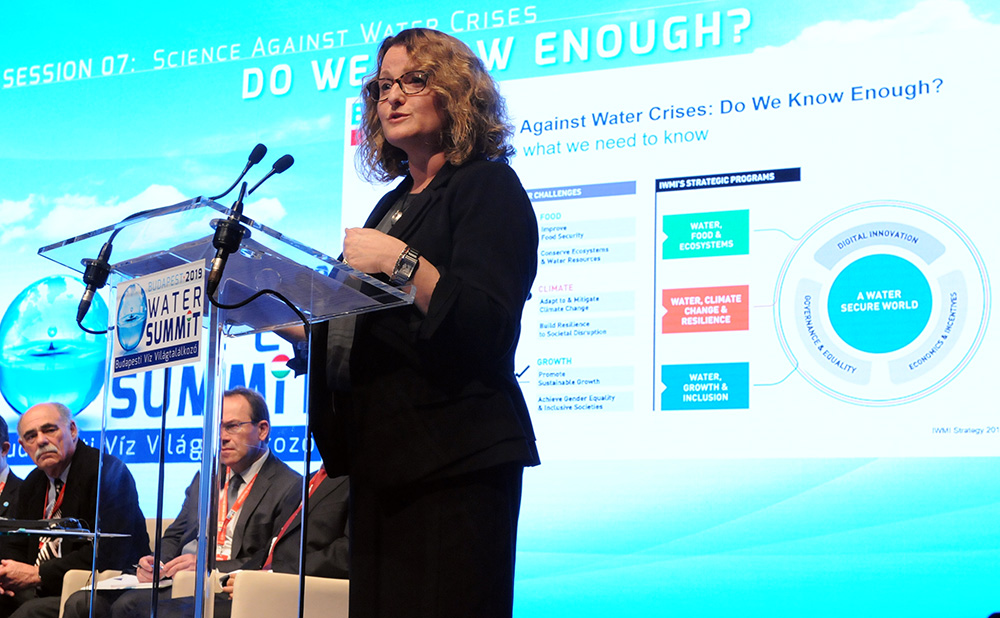
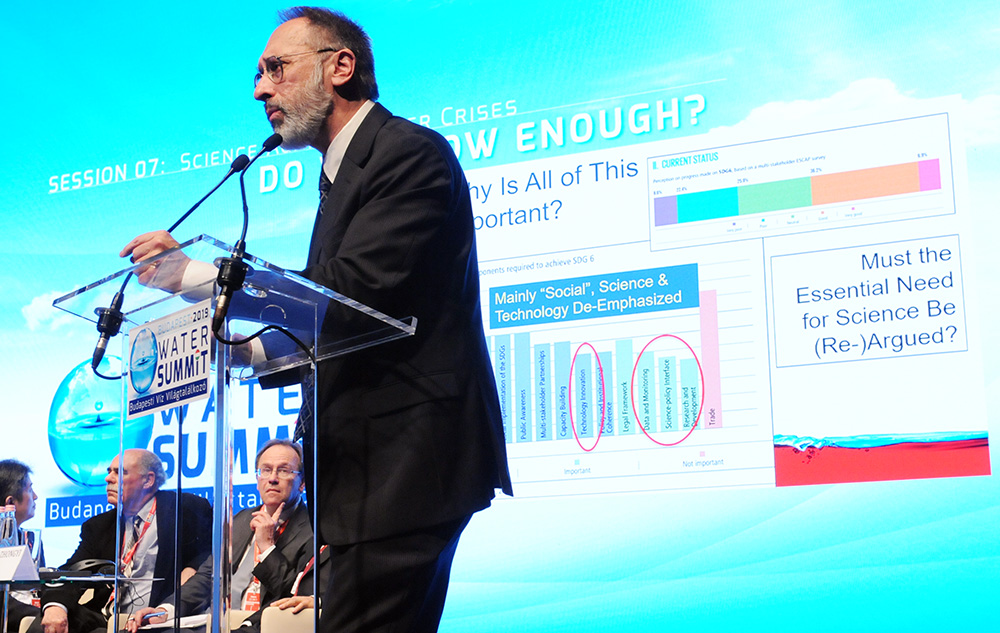
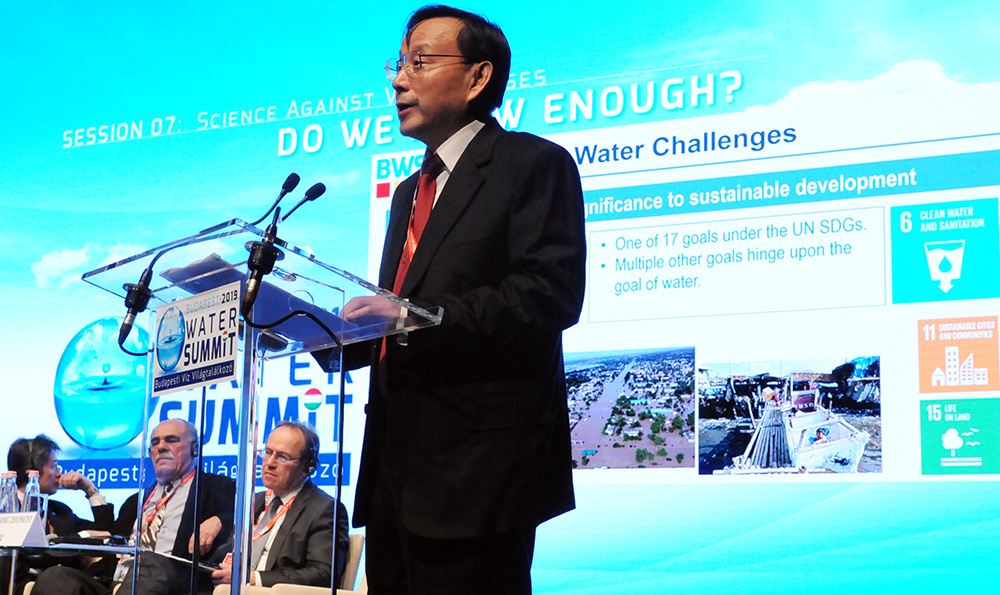
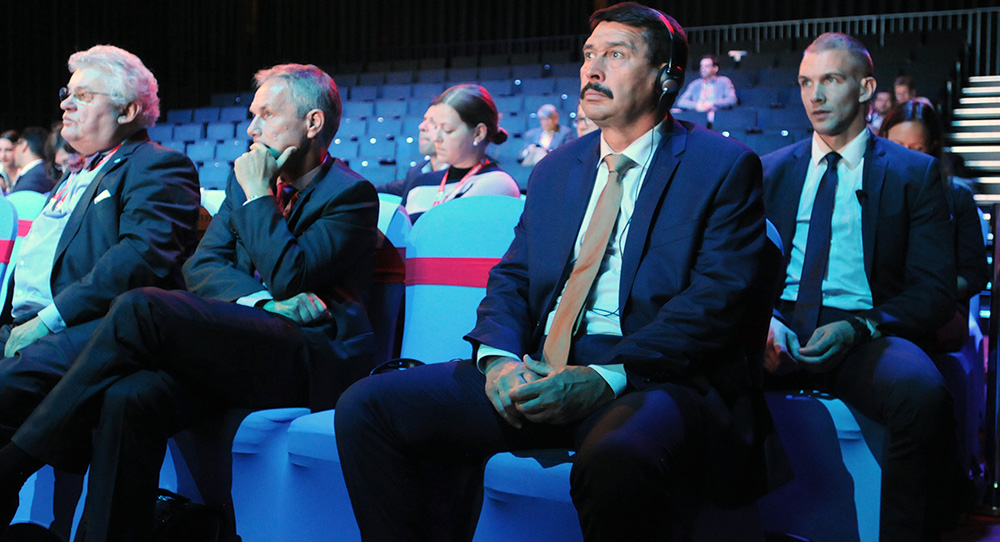
Around the Venue
